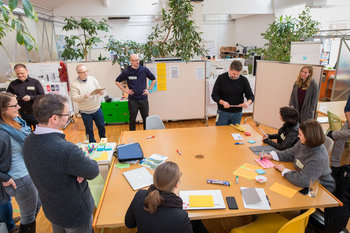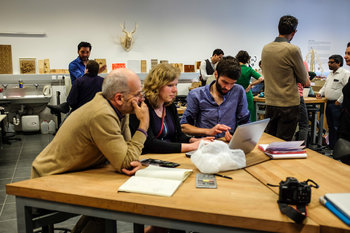Artifacts (analysis of) | Case Studies |
Concepts (development of) | Conjecture |
Critical Analysis | Culture (observation / analysis) |
Debates | Descriptions |
Documents (analysis of) | Expert Opinion |
Film and Fiction (analysis of) | First Principles (development of) |
Focus Groups | Historical Accounts (analysis of) |
Hypotheses Development | Interviews |
Language (analysis of) | Media (analysis of) |
Observation | Questionnaires & Surveys |
Social Processes (observation / analysis) | Textual / Visual Models (development of) |
Thought Experiments (development of) | Transcripts (analysis of) |
Myths Regarding Qualitative Analysis
1. It is not completely true that qualitative analysis is subjective in the sense that objectivity can be applied. It is absurd to think that all qualitative analysis is completely subjective and all quantitative analysis is completely objective. This would depend on the methodology and rigor of each study.2. Qualitative analysis is not inconsistent with the scientific method and is an important part of the scientific process. For example, a theoretical physicist who uses a thought experiment to arrive at a theory that may be confirmed by quantitative analysis decades later.3. It is a common belief that quantitative analysis is more accurate, rigorous and powerful than qualitative analysis. This isn't necessarily true. Qualitative analysis has broad explanatory power and can be applied in a rigorous fashion to produce valid reproducible research.Qualitative Accuracy
Qualitative analysis can make use of qualitative information that is out of reach of quantitative methods such that its conclusions may be more grounded in reality. As an example, consider a stock analyst who only looks at the available numbers for a company to develop a prediction of future stock price. This could be compared to an analyst who uses qualitative information such as their knowledge of company plans to invest large amounts of capital into a strategy that is almost certain to fail. The latter analysis could be more grounded in reality and may produce far more accurate estimates.Notes
It is common to combine qualitative and quantitative analysis such that the two shouldn't be viewed as mutually exclusive.| Overview: Qualitative Analysis | ||
Type | ||
Definition | A detailed examination of non-numerical information. | |
Related Concepts | ||




































